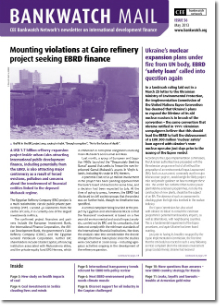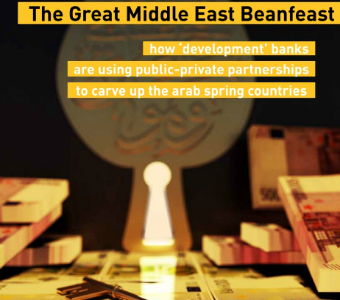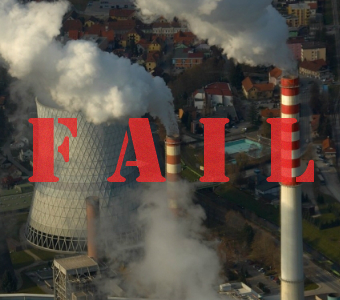Connie Hedegaard: Stop paying the polluters
Publication | 10 May, 2013“When the winds of change blow,” says an old Chinese proverb, “some build walls, and others build wind mills.”
Read moreNEVER AGAIN – Sostanj lignite power plant financing slammed
Publication | 10 May, 2013Following confirmation at the beginning of March that the European Investment Bank and the European Bank for Reconstruction and Development are paying out half a billion euros in loans for a new unit at the Sostanj lignite power plant (TES 6) in Slovenia, 98 organisations sent an open letter to both banks calling on them to never commit to such misguided loans again.
Read moreA black future for the Black Sea and its people – is the rest of Europe funding Turkey’s huge coal power plans?
Publication | 10 May, 2013Amasra, situated on the south coast of the Black Sea, is an ancient city that these days bases its economy on tourism and fishing. It’s the beginning of April and the women’s market is welcoming the first tourists of the year with fresh cheese, home-made pasta and vegetables. On the wall in a nearby cafe hangs a large poster with the slogan: “Amasra does not need a power plant”.
Read moreGuest post: Development banks and the Arab Spring, new report takes stock
Blog entry | 6 May, 2013A new report takes a critical look at the engagement of European development banks in Egypt after the popular uprisings in the Middle East and North African region. This article appeared originally on the Counter Balance blog and has been shortened and slightly edited.
Read moreNGO letter regarding Projects of Energy Community Interest
Publication | 29 April, 2013The letter accompanied Bankwatch’s and other NGOs’ input to the public consultation on the proposed Projects of Energy Community Interest in the electricity, gas and oil sectors. With the letter, civil society groups jointly address several important matters about the process, scope and selection criteria. See also Bankwatch’s inputs to the consultation.
Read moreInput for online questionnaire on Projects of Energy Community Interest
Publication | 29 April, 2013Our input expresses our main concern relating to the need to develop an energy sector in southeast and eastern Europe that is in line with EU environmental and climate policies and legislation, as well as one which addresses the increasing problem of energy poverty through sparing and efficient energy use. We underline the need for the PECIs projects to be in line with current and forthcoming EU legislation and policies on climate, environment, renewable energy and energy efficiency.
Read moreThe climate crisis and the role of Europe’s public banks
Publication | 22 April, 2013With each passing day, there is less chance that we will manage to keep the planet within the “safe” limit of two degrees Celsius global warming that would avoid disastrous climate change. The European Investment Bank and the European Bank for Reconstruction and Development can play a pivotal role in leveraging more private investment for sustainable energy. Both institutions are now reviewing their energy lending policies.
Read moreGuest post: Never again Sostanj
Blog entry | 20 March, 2013Disappointed by loan disbursements to one of the dirtiest coal projects in Europe, almost 100 organisations have called on two public lenders to not repeat the same mistakes, ever.
Read moreNever again Sostanj, NGOs warn European public banks after Slovenia debacle
Press release | 20 March, 2013After the EIB and the EBRD disbursed a promised 650 million euros for Slovenian lignite plant TES 6 on March 8, Focus Slovenia, CEE Bankwatch Network, and 96 other NGOs are today sending a letter to the two banks calling on them to never commit to such a misguided loan again.
Read moreOpen letter to EIB & EBRD: Sostanj must never happen again
Publication | 20 March, 2013After the EIB and the EBRD disbursed a promised 650 million euros for Slovenian lignite plant TES 6 on March 8, Focus Slovenia, CEE Bankwatch Network and 96 other NGOs sent this letter to the two banks calling on them to never commit to such a misguided loan again. The letter includes a list of reasons why Sostanj was undeserving of public loans and a set of measures that need to be taken by the banks immediately in order to avoid such mistakes from being repeated in the future.
Read more


